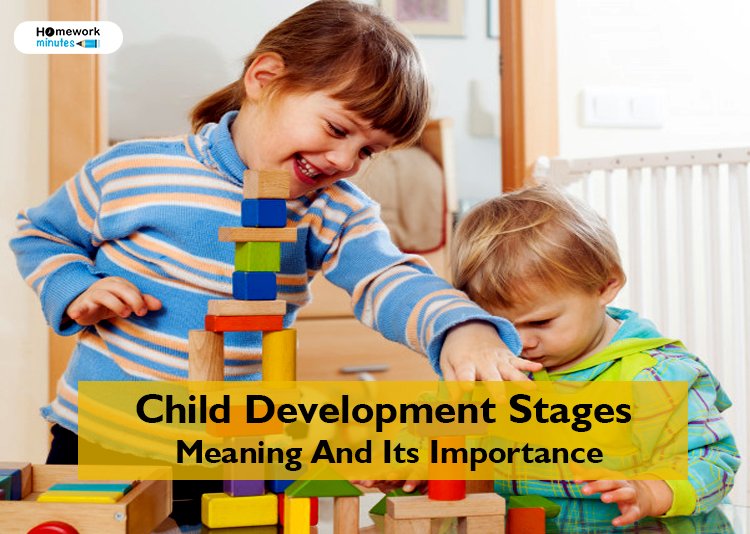Child development stages refer to the growth of a child since its birth until adulthood. It includes psychological and physical blooming. A child not only learns from his parents but also his surroundings.
Thus the development is dependent upon a child’s growth at different stages.
Also, Read Our Latest Post
Quantum Computing Explained: A Brief Overview | Homework Minutes
Why to Study Child Development?
Child development stages enable us to know and shape a child’s behavioral, physical and psychological growth.
Moreover, it focuses upon all the aspects that matter in the development of a child. Here are a few key points to focus upon:
COGNITION or Mental Development
- It observes whether the child with growing age is also developing mentally or not.
- Learning, memorizing, and understanding are few aspects that develop at this stage.
SOCIAL INTERACTION AND EMOTIONAL GROWTH
- It is concerned about a child’s response to minor incidents that occur daily. Every little observation of expressions leads to emotional development.
PHYSICAL DEVELOPMENT
- A child learns Bodily movements like running, walking, balancing the body, dancing, using fingers properly, etc.
SPEECH AND LANGUAGE
- It shows how a child communicates socially, how he/she builds communication and responds to another person.
By culminating all these areas, one could analyze healthy child development.
The Ages And Stages Of Development
There are mainly three stages of development.
1. Early childhood
2. Middle childhood
3. Adolescence
Early childhood ( Birth To Eight Years)
In the beginning years, especially from pregnancy to 3 years, a child’s brain develops. It requires nutrition, protection, and stimulation to thrive. At an early childhood stage, a child needs protection, food, and responsive caregivers’ attention.
Evidently, early childhood stays the crucial time when the brain builds itself with the help of nutrition and surrounding. A child has twice as many neural connections as an adult.
Points to remember:
- Stimulate child talk and do it as its real conversation.
- Read to your baby (stories, poems, or any narrative); this enhances their language.
- Let your child learn something new every day.
- Make lots of faces to enhance emotional intelligence.
- Make sure that you pay full attention and love them, challenge them to be friendly so that they keep focussing upon tasks.
Growth and development become the focus during this stage, as this is when the brain develops itself. All babies need during this time is a gentle push towards good development.
MIDDLE CHILDHOOD ( Eight Years To Twelve)
During this stage, a child gets social, emotional, and cognitive development.
Following are the result that takes place during this stage:
Cognitive development
Conservation of thoughts, Abstract thinking, and a sense of perspective take place during this stage.
Emotional development
Identity formation, such as recognizing one’s interest and talent. they learn to understand their emotions and regulate them. They know to handle their emotions. Social development occurs as the emotional attachment of a child’s growth from family to privacy and individual.
Points to remember:
- Reinforce the child while doing any good act.
- Try to build up positive communication; this would enhance their cognitive and linguistic skills.
- Befriend them so that they could share their problems and emotions easily.
ADOLESCENCE
Adolescence is the most crucial stage for a kid. It becomes a bit hard for kids to understand their development due to both internal and external changes. It includes many physical, psychological, and cognitive changes.
Physical Development:
Puberty is the primary concern during this stage; in this, adolescence experiences an overall physical spurt. Chest development, hip broadens, legs get larger, hair becomes darker and coarser. Pubic and underarm hair develops as well.
Mensuration also starts in females during this stage, which brings significant changes in them.
Cognitive Development:
During this stage, a child reaches formal operational thought; here, he starts thinking more logically. He/She also begins to question, “what if’.”
Children could start questioning parents. They start discussing their thoughts that should be adopted in their society. Ideas get expanded; they begin to think about their role in society and goals.
Points to remember:
- Show faith over their decisions.
- Please encourage them to think independently and develop their ideas.
- Involve them in the decisions making concept.
- Help them to set goals.
As can be seen, the child development stages are essential for both physical and psychological growth. The seed that we sow should get water adequately by taking care of the environment to grow healthily and beautifully.


